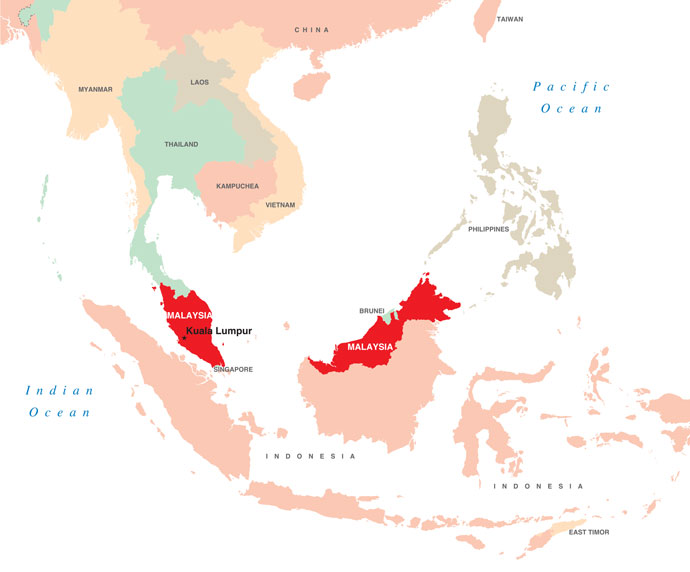Malaysia is determined to be on global companies’ short lists of potential regional headquarters locations for their Southeast Asia operations. So determined, in fact, that a principal hub incentive was introduced as part of the Malaysia 2015 budget. It took effect May 1st.
The chief beneficiary of this incentive will be Greater Kuala Lumpur, Malaysia’s capital and chief business center that already is home to dozens of multinationals’ regional operations centers. These include the operational headquarters of Hewlett-Packard, Siemens and Kellogg’s; the international procurement centers of Sony and Sharp; the regional or global shared services centers of DHL, Electrolux, IBM and Shell; and the regional distribution centers of UMW Toyota and DuPont, among others.
More broadly, the Malaysian Investment Development Authority (MIDA) approved more than 3,500 regional establishment investments in Malaysia between 2003 and 2014. Multinationals opening global operation hubs (the model on which principal hubs are based) in Malaysia in recent years include Intel, B Braun, Vale and Halliburton.
The new incentive applies to companies establishing a principal hub — not merely a regional office or operational headquarters. What’s the difference? InvestKL, Greater Kuala Lumpur’s chief investment promotion agency, defines a principal hub as “a centralized base for companies operating as a nerve center to conduct its regional and global businesses. The key functions of a principal hub include management of risks, decision making, strategic business activities, trading, finance, management and human resources.”
Malaysia, and Kuala Lumpur in particular, competes with China, and Hong Kong in particular, as well as Singapore for Southeast Asia regional operations across a range of range of key industries, including oil and gas, ICT, electronics and petrochemicals.
“The incentive will propel Greater Kuala Lumpur’s value proposition as the optimal ASEAN regional headquarters, complementing InvestKL’s efforts in attracting multinationals with high value activities to Malaysia’s capital, and supporting further high-skilled regional job growth,” noted Datuk Zainal Amanshah, CEO of InvestKL.
How it Works
The principal hub incentive is based on a three-tiered corporate taxation rate — 0 percent, 5 percent and 10 percent depending on the level of value created. Eligible multinationals must serve and control at least three countries outside Malaysia and carry out at least three qualifying services, one of which must be in the strategic services cluster. These services are regional P&L/business unit management, strategic business planning and corporate development, corporate finance advisory services, brand management, IP management and senior-level talent acquisition and management. MNCs also can provide various business and shared services from the principal hubs.
Malaysia’s enhanced support of principal hub investments in 2015 coincides with Malaysia assuming the chairmanship of the Association of Southeast Asian Nations (ASEAN). Datuk Phang Ah Tong, Deputy Chief Executive Officer of MIDA, explains the significance: “This incentive leverages and utilizes ASEAN’s economic cooperation through the ASEAN Trade in Goods Agreement, ASEAN Comprehensive Investment Agreement and ASEAN Framework Agreement on Services. ASEAN’s connectivity is a catalyst that will enhance the supply chain networks in the region to global markets. This factor makes the principal hub incentive more attractive.”
Datuk Phang hosted a seminar on the new incentive May 6th at MIDA’s Kuala Lumpur headquarters. He also made the point that the incentive complements Malaysia’s intent to become a high-income economy by 2020, as is stipulated in the national Economic Transformation Programme. “The government has embarked on the development of the services sector as part of its strategy to sustain the momentum of economic growth and improve the competitiveness of the Malaysian economy,” he pointed out. “The services sector, besides being an important industry itself, also assumes an important intermediary role of supporting businesses in all sectors of the economy.”

